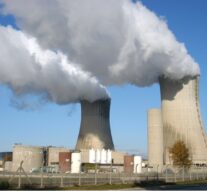
France unveils its plans on the EU energy agenda
Energy 11 April 2023Estimated time of reading: ~ 2 minutes
While thousands of citizens go to the streets in order to protest against President Emmanuel Macron and his pension reforms, French authorities work on the energy agenda in Brussels. In particular, the Government is pushing to include nuclear power in the EU’s new renewable energy rules, as to take advantage of the country’s production from the 56 operable reactors in France. Paris negotiators succeeded in finding a bright spot for hydrogen made from atomic energy in the green legislation, as evident in the provisional deal on the Renewable Energy Directive (REDIII), which sets for the entire EU a mandatory renewables target of 42.5 percent by 2030 — up from the current goal of 32 percent. Hydrogen generated from nuclear energy, called “pink hydrogen”, would allow France to continue its investment policy in the atomic sector.
As French Energy Minister Agnès Pannier-Runacher said, the deal on REDIII is “an important step forward”, marking a switch in the paradigm of different choices of energy mixes all over Europe. French efforts in this direction lead to the creation of two camps in the recent EU Council of Energy ministers, on 28 March. France and 10 other member states were dubbed as the “pro-nuclear alliance”, while their opponents underlined the prominent role of renewables. Negotiators from the French Government worked with their counterparts from Bulgaria, Croatia, the Czech Republic, Finland, Hungary, the Netherlands, Poland, Romania, Slovakia, and Slovenia, to get nuclear technology fully recognized as a strategic driver for achieving climate neutrality in the EU.
According to some experts, France used other member states for advancing its national interests, in a way that could jeopardize the unity in the EU on energy and climate action. What has happened with France on “pink hydrogen” could have a negative impact on EU politics, together with Germany’s push to exclude cars running on e-fuels from the agreement on zero-emissions limit on the sale of new cars from 2035.
Written by: Francesco Marino


